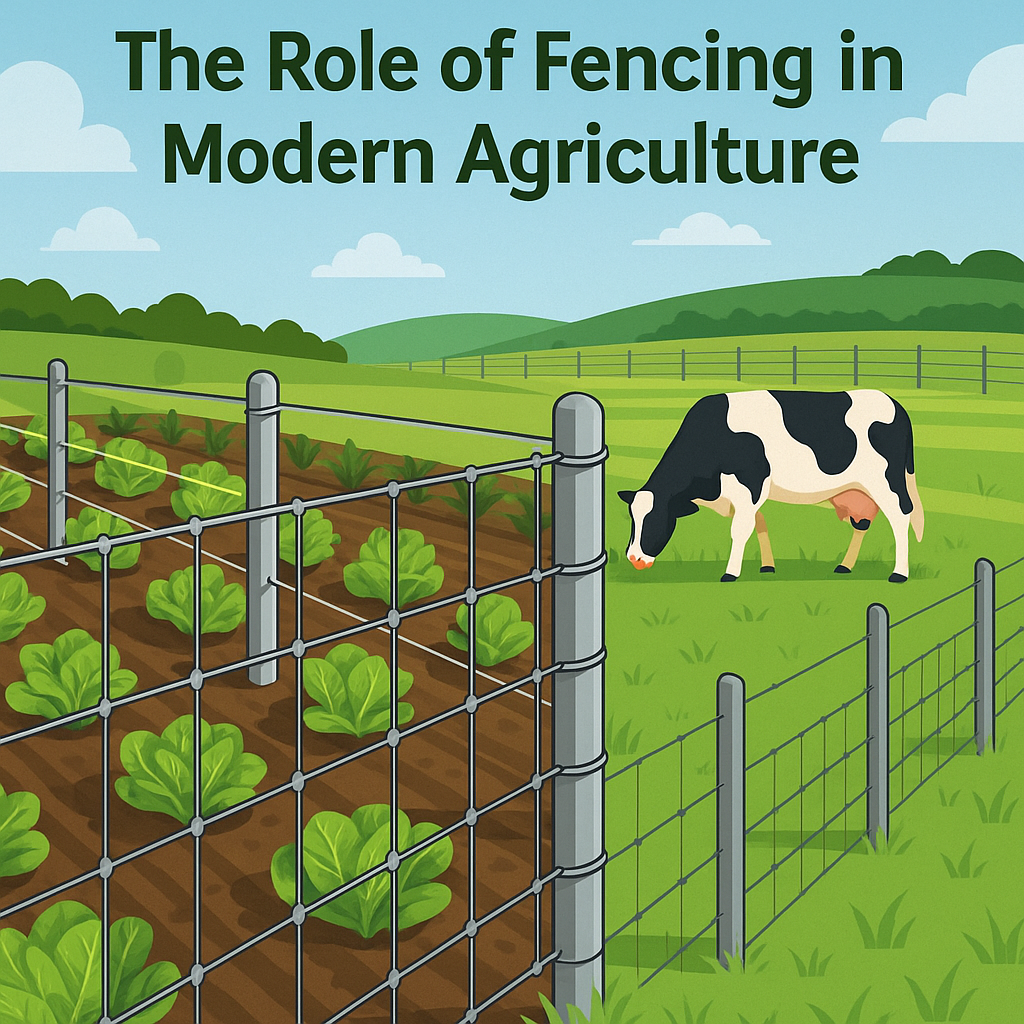The Role of Fencing in Modern Agriculture

In today’s agriculture, efficiency and protection are key. With rising input costs, unpredictable weather, and threats from wild animals or trespassers, farmers can’t afford to leave their fields exposed. That’s where fencing plays a crucial role—not just as a boundary, but as a strategic investment in security, productivity, and peace of mind.
Whether it’s a small vegetable plot or a sprawling plantation, a well-planned fencing system is vital for any modern farm.
Why Fencing Is No Longer Optional
Traditionally, fencing was seen as a basic necessity—something rudimentary to mark territory. But modern-day challenges have elevated its importance:
✅ Crop Protection from Wild Animals
In regions like Kerala, wild boar, monkeys, and even elephants pose constant threats to standing crops. A sturdy fence—especially one designed to withstand animal impact—prevents severe crop losses.
✅ Livestock Containment
Free-roaming cattle or goats can damage crops and wander off, risking loss and legal issues. Proper fencing ensures animals remain safe and confined to their designated areas.
✅ Prevention of Encroachment and Theft
As land value rises, so do disputes. Clearly marked, durable fences prevent encroachment and unauthorized access, reducing the chances of conflict or crop theft.
✅ Better Farm Management
Fences help farmers segment land efficiently—for rotation cropping, water management, or creating access paths. This improves operational control and productivity.
Types of Fencing in Modern Agriculture
Different types of fencing serve different purposes. Common options include:
- Barbed Wire: Cost-effective for perimeter fencing, especially in large farms.
- Chain-Link Fence: Suitable for high-security areas like nurseries or orchards.
- Knotted Fence: Highly recommended for animal control and long boundaries.
- 3D Weld Mesh: Aesthetic and strong—ideal for farmhouses or fencing with visibility.
Technology Meets Tradition: The Knotted Fence Advantage
Among all modern fencing types, the Knotted Fence stands out. It uses high-tensile galvanized steel, can span up to 20 feet between posts, and is animal-friendly, preventing injuries during collisions.
Key Benefits:
- Lighter, flexible, and easier to install
- Low maintenance—does not sag or rust easily
- Cost-effective in the long run
- Withstands both animal impact and harsh weather
Why Material Quality Matters
Fencing is not a frequent investment, so durability matters. Poor-quality wires corrode quickly, loosen easily, and end up costing more over time.
That’s why farmers today prefer GI wires and fencing products from Tata Wiron—India’s most trusted wire brand.
Tata Wiron & Modern Distropolis Limited: Kerala’s Trusted Fencing Partners
When it comes to fencing solutions in Kerala, one name dominates the landscape—Tata Wiron, distributed across the state by Modern Distropolis Limited. With a strong retail network and years of expertise, we ensure that quality fencing products reach every corner of Kerala, empowering farmers with durable, cost-efficient, and easy-to-install solutions.
Our Offering Includes:
- GI Wires
- Barbed Wire
- Knotted Fence
- Chain-Link Fencing
- 3D Weld Mesh
- PVC Coated Wires
- Stambh Fence Posts
- Vegetable Creepers and Tomato Cages
We don’t just sell wire—we support Kerala’s farming community with reliable materials, expert guidance, and on-time service.
Conclusion: Fence Smart, Farm Strong
Fencing isn’t just a boundary—it’s a frontline defense, a management tool, and a sign of professionalism. In the age of modern agriculture, every farmer deserves a solution that is durable, economical, and built to last.
So whether you’re planning a new fence or upgrading an old one, choose Tata Wiron and partner with Modern Distropolis Limited—where strength meets service.
